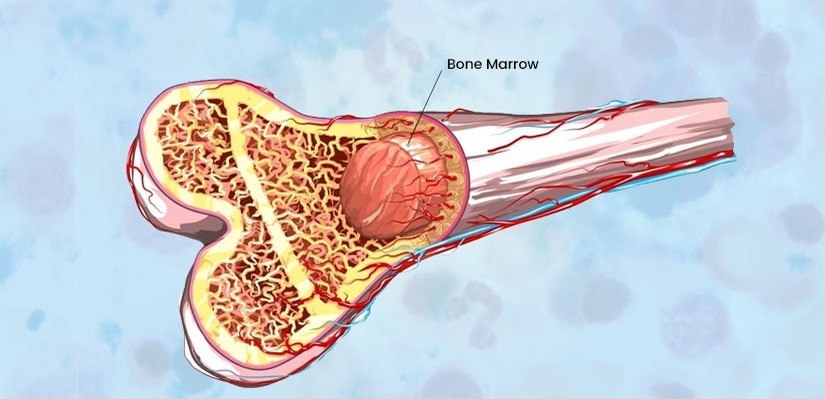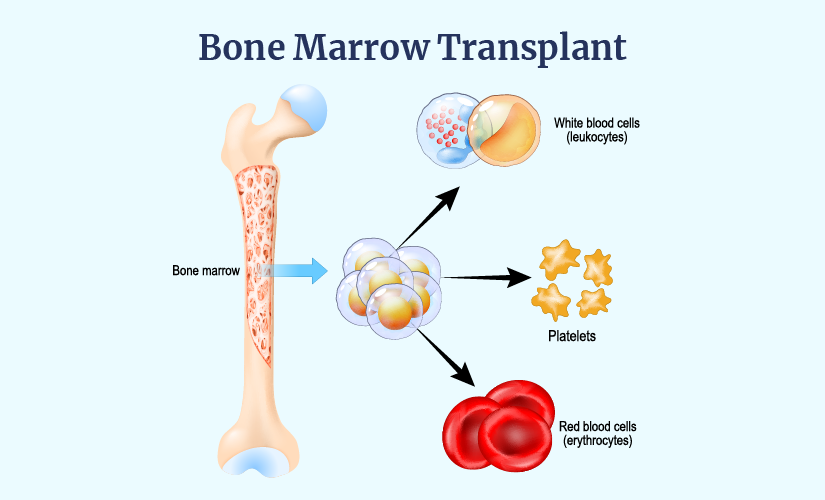Bone Marrow Transplant
Bone Marrow Transplant in Iran
Shariati Hospital in Tehran: Stands out as a premier destination for bone marrow and stem cell transplants in Iran. With a dedicated and experienced team in hematology and oncology, they provide a full range of services for both autologous and allogeneic bone marrow transplants.
Taleghani Hospital, also in Tehran: It is well-regarded for its state-of-the-art hematology and bone marrow transplant unit, catering to both adults and children who require stem cell therapy or transplants.
Namazi Hospital in Shiraz: It serves as a key referral center for transplant procedures in southern Iran, offering comprehensive care and modern facilities for patients undergoing bone marrow transplants.

Bone Marrow Transplant Costs in Iran
When it comes to Bone Marrow Transplant Costs in Iran, patients can enjoy a significant financial advantage. Several factors contribute to the affordability of these procedures: – A high volume of transplants performed in the country – The availability of skilled specialists and well-trained support staff – Government backing and a subsidized healthcare system The cost of a bone marrow transplant in Iran varies based on several factors, including whether the transplant is autologous or allogeneic, the specific hospital, and the patient’s health condition. On average, prices range from $20,000 to $40,000, which is considerably lower than what you’d find in many Western countries.
Best Bone Marrow Transplant Surgeon in Iran
Choosing the right bone marrow transplant specialist is essential for a successful treatment. You should take into account factors like the doctor’s experience, their training, the accreditation of the transplant center, and the outcomes for patients. Iran boasts a number of internationally trained hematologists and transplant surgeons who have successfully carried out hundreds of bone marrow transplant procedures.
About Bone Marrow Transplant
Bone marrow is that soft, spongy stuff inside your bones that’s responsible for making blood cells. When someone has certain types of cancer or blood disorders, this vital marrow can get damaged and stop working as it should. A bone marrow transplant, which is also known as a stem cell transplant, steps in to replace the unhealthy marrow with healthy stem cells, helping to kickstart normal blood cell production again.
Before the Bone Marrow Transplant
Medical Evaluation: The transplant team will carry out a thorough assessment that includes blood tests, imaging scans, a bone marrow biopsy, and an evaluation of organ function to determine if you’re a good candidate for a transplant.
Finding a Donor:
- In an autologous transplant, your own stem cells are gathered and preserved.
- In an allogeneic transplant, stem cells are sourced from a compatible donor, which is often a family member or a volunteer from a donor registry.
Stem Cell Collection:
- From Bone Marrow: Cells are extracted directly from the hip bone while you’re under anesthesia.
- From Peripheral Blood: Growth factors are administered to help move stem cells into the bloodstream, where they can be collected through a process called apheresis.
- From Umbilical Cord Blood: This is collected at birth and can be stored in either public or private banks.
During Bone Marrow Transplant
Conditioning Therapy: Patients undergo high-dose chemotherapy, and sometimes radiation, to eliminate cancer cells and temporarily suppress the immune system, making room for new cells to grow.
Transplant Infusion: Stem cells are delivered through an IV, much like a blood transfusion. The whole process is painless and usually takes about 1 to 2 hours.
Engraftment: Once infused, the stem cells make their way to the bone marrow, where they start producing new blood cells. This stage typically takes around 2 to 3 weeks.

Recovery After Bone Marrow Transplant in Iran
Hospital Stay:
Patients usually spend about 3 to 4 weeks in a sterile unit to keep the risk of infection as low as possible.
Medications:
Following a transplant, doctors prescribe medications to help with cell growth, ward off infections, and manage graft-versus-host disease (GVHD) in cases of allogeneic transplants.
Follow-up Care:
- Regular blood tests
- Bone marrow evaluations
- Vaccinations
- Nutritional counseling
- Long-term survivorship support
FAQs About Bone Marrow Transplant in Iran
1. What conditions are treated with bone marrow transplant?
Bone marrow transplant is used to treat leukemia, lymphoma, multiple myeloma, aplastic anemia, thalassemia, and immune deficiencies.
2. What are the different types of BMT?
There are two main types:
- Autologous transplant – using the patient’s own cells
- Allogeneic transplant – using cells from a donor
3. How long is the recovery period?
Initial recovery takes around 3–4 weeks in the hospital, but full immune recovery can take 6–12 months.
4. Is it safe to travel to Iran for a BMT?
Yes, Iran has internationally accredited hospitals, experienced medical staff, and affordable treatment options, making it a growing destination for medical tourism.
5. How do I find a donor if I don’t have a family match?
Your transplant center can search international bone marrow donor registries or explore the use of haploidentical (half-matched) family donors or cord blood units.
6. What are the risks of BMT?
Potential complications include infections, graft failure, GVHD, organ damage, and relapse of the original disease. However, modern care and monitoring have greatly improved outcomes.
7. Will I need to stay in Iran for a long time?
Yes. Typically, 6–8 weeks are needed for the transplant and initial recovery, including pre-evaluation and post-transplant follow-up.
8. What is the success rate of BMT in Iran?
Success rates vary by condition and transplant type but are comparable to international standards. Many hospitals in Iran report success rates of 60–80% in eligible patients.
Resources:
https://www.mayoclinic.org/tests-procedures/bone-marrow-transplant/about/pac-20384854